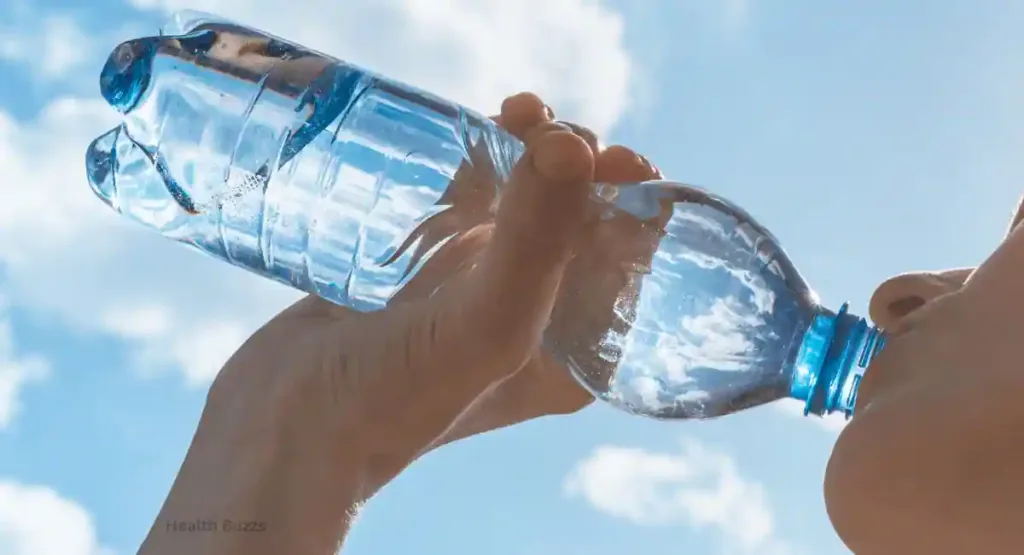Can Dehydration Damage Your Kidneys? Understanding the impact of dehydration on kidney health is crucial. When the body loses more fluids than it takes in, it is called dehydration, and it may severely damage kidney function. The kidneys are vital in filtering waste and regulating fluid balance. When dehydration sets in, the kidneys’ ability to perform these functions can be compromised, potentially leading to kidney damage or even failure. It underscores the importance of staying hydrated to maintain optimal kidney health and well-being.
– Introduction
Our bodies are like finely tuned engines, with each organ carrying out its specific role to maintain peak functionality. None do this with more quiet determination than our kidneys — these bean-shaped organs, oft-overlooked, are a critical part of the human system. In discussions about hydration, people rarely overstate the importance of kidney health. Dehydration can be a silent predator, slowly undermining the foundations of our well-being, beginning with our renal health. Today, we will explore the complex relationship between dehydration and kidney function, delving into why staying hydrated is not just a casual lifestyle choice but a fundamental health directive.
– Understanding Dehydration
Defining Dehydration
Dehydration is more than just a simple matter of not drinking enough water. It is a state where the body consistently loses more fluids than it takes in. It can result from various circumstances, including illness, excessive sweating, and environmental conditions such as high heat. The consequence is that the body lacks the fluids it needs to carry out regular functions, causing a chain reaction of harmful effects, not least of which is the strain placed on the kidneys.
Common Causes of Dehydration
Dehydration can have numerous causes, some obvious and others less so. Among the most common are:
- Everyday habits like inadequate water intake or alcohol and caffeine consumption can act as diuretics
- Climate and environmental conditions, especially during hot weather
- Physical activity and not rehydrating adequately during exercise
- Certain medications that have dehydration as a side effect
- Underlying health issues like diabetes that can lead to increased urination

Failure to address these causes can lead to many health concerns, and the kidneys are particularly vulnerable to damage.
Read Also– Vitamin C in Winter for Skin:
– The Role of Kidneys
The Filtration Factories
Kidneys are the unsung heroes of our internal workings. They filter blood, removing waste and excess fluids, which eventually become pee. They also regulate the body’s salt, potassium, and acid content and produce hormones that influence the functioning of other organs. Kidneys are crucial to maintaining a balanced internal state, known as homeostasis, conducive to good health.
Keeping Balance
Previously, people thought acute kidney damage was a rare event, but it is more widespread than once understood. It can be the result of various factors, including dehydration. Dehydration disrupts the kidneys’ role in maintaining homeostasis, as the lack of fluids leads to more concentrated and decreased amounts of urine; it may eventually result in the body’s poisons building up.
– Dehydration and Kidney Health
1. The Immediate Impact
When the body is dehydrated, the blood volume gets lower, which means kidneys receive less blood to filter. The resulting damage can be significant, as the reduced blood volume means that waste can build up within the body, possibly causing harm to other organs like the lungs, the brain, and the heart.
2. Potential Long-Term Complications
Chronic dehydration over a prolonged period can increasing the risk of getting stones in your kidneys and infections of the urine tract, disorders that can severely disrupt normal kidney function and cause significant pain and discomfort. Furthermore, it can contribute to the development of chronic kidney disease (CKD), a progressive loss of kidney function over time.
Read Also- Cherries- Boost Your Health with Cherries- 10- Cherries Benefits
– Identifying Dehydration
1. Recognizing the Signs and Symptoms
It’s essential to be able to recognize when dehydration strikes. From minor to severe symptoms, such as increased thirst, dry mouth, fatigue, dark-colored urine, dizziness, and, in the most severe cases, confusion and unconsciousness. By developing the ability to pay attention to and react to our organs’ messages, we can take the first step to rehydration and protection against kidney damage.
2. Early Detection Is Key
The earlier dehydration is detected, the easier and quicker it can be rectified. This is why being proactive about hydration is crucial, especially in high-risk situations like intense physical activity or illness. The first signs are often the most telling, and prompt action can prevent damage before it starts.
– Preventing Dehydration
The Foundation of Wellness: Hydration
Hydration is not just about drinking enough water; it encompasses a balanced approach to fluid intake, physical activity, and diet. Preventing dehydration means regularly consuming healthy fluids and foods containing water, including veggies and fruit with a high water content, engaging in moderate and regular exercise, and being highly attuned to the body’s need for rehydration.
Staying Hydrated: Tips for Action
Maintain a hydration schedule, carry a reusable water bottle, and ensure easy access to water. Additionally, monitoring the color and quantity of urine output — pale yellow and relatively abundant is generally a good sign — and paying attention to environmental factors that may increase the body’s need for fluids is helpful.
Read Also– Winter Flu Season- 10 Home Remedies for Beating the Flu This Winter

– The Link Between Dehydration and Kidney Damage
Scientific Backing
Scientific evidence has established a clear association between chronic dehydration and kidney damage. Research indicates that even low degrees of dehydration may result in kidney stress., overworking these vital organs and potentially leading to long-term damage.
An Ounce of Prevention
The saying “The adage that “a teaspoon of precaution is equal an ounce of cure” is particularly applicable to kidney health.” The most straightforward step to preventing kidney damage due to dehydration is maintaining regular, adequate fluid intake and recognizing the body’s signals when more hydration is needed.
– Managing Dehydration and Kidney Health
Treating Dehydration
Rehydration involves more than just imbibing water for those already suffering from dehydration. Depending on the severity, oral rehydration solutions, intravenous fluids, and rest may be applied to restore the kidneys to balance and well-being.
Lifestyle Changes for Longevity
The best treatment for dehydration, however, is prevention. Through lifestyle choices that prioritize hydration, such as drinking water before feeling thirsty, making conscious choices about alcohol and caffeine intake, and being aware of any medications that may affect fluid levels, one can significantly reduce the risk of dehydration-related kidney issues.
Read Also– Diabetes and Cold Weather- Tips for Staying Healthy in Winter
Conclusion
The kidneys are vital to our health, and their proper functioning is intrinsically linked to hydration. When we understand the risks of dehydration, we take a critical step towards safeguarding these crucial organs. Through education, awareness, and proactive choices, we can ensure we do our part to keep them healthy and functioning optimally. Staying hydrated isn’t just about quenching a temporary thirst; it’s a commitment to longevity, health, and vitality.
Learning more about how dehydration affects our kidneys isn’t just about the individual — it’s about creating a culture of health-consciousness that can benefit communities at large. By sharing this valuable information and making hydration a priority in our lives, we contribute to a healthier, more kidney-resilient society.
FAQs About Can Dehydration Damage Your Kidneys
Early signs may include decreased urine output, persistent fatigue, and swelling in the hands or feet.
Yes, excessive water intake can disrupt electrolyte balance and lead to a condition known as water intoxication, which may strain the kidneys.
Dehydration can affect individuals of all ages, but older adults and young children may be more vulnerable due to differences in fluid regulation and thirst perception.
In severe cases, prolonged dehydration can contribute to kidney damage, but early intervention can help prevent irreversible harm.
Sports drinks may be beneficial during intense physical activity to replenish electrolytes lost through sweat, but water remains the best choice for everyday hydration needs.
Hi there! I’m content writer and blogger. With over two years of experience, I’ve shared my passion for writing across various platforms. I firmly believe in the transformative power of words and look forward to sharing this journey with you. Enjoy my work!










